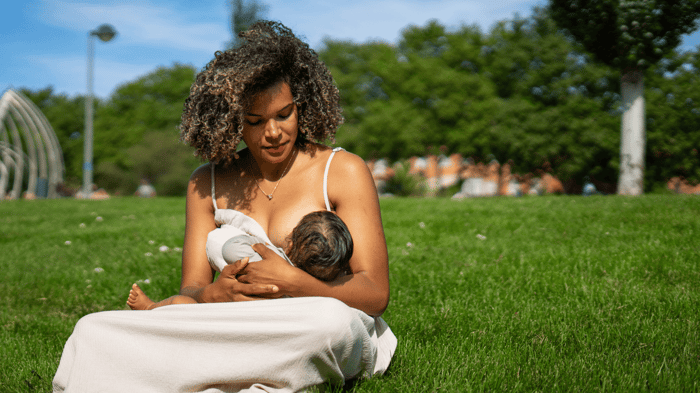Table of Contents
What No One Tells You After the Baby Arrives
The day you give birth, your body becomes a marvel of endurance. Friends and family gush over the baby, the tiny fingers, the sleepy yawns. But for many women, behind the smiles lies a quieter truth: the body feels raw, tender, and not entirely recognizable.
Stitches tug. Hormones swing. Even sitting on a chair can feel like a negotiation. And when it comes to intimacy, vaginal dryness or discomfort may feel like an unexpected betrayal.
What’s missing from many postpartum conversations is a simple, empowering truth: there are gentle, natural ways to restore vaginal comfort after birth. Not quick fixes that ignore the body’s healing, but remedies rooted in nourishment, care, and patience.
This blog is a deep dive into those remedies—the ones women whisper about to each other, the ones grandmothers sometimes pass down, and the ones modern science is beginning to celebrate.
The Postpartum Body
Childbirth transforms the body in ways both visible and hidden. Vaginal tissue stretches dramatically, sometimes tearing or requiring stitches. Blood flow shifts, estrogen drops, and pelvic muscles loosen.
The result? For many women, the vagina feels drier, more sensitive, and more fragile than before. This is not failure—it is biology. The body has just performed one of the greatest feats of life. But the transition can leave mothers feeling disconnected from their own comfort.
The good news? Nature provides tools—plants, practices, and rituals—that help guide the body back toward ease.
Herbal Allies
Long before pharmacies and packaged products, women turned to herbs to ease postpartum discomfort. Today, many of these remedies still hold their place in postpartum care.
Sitz baths with calendula and chamomile are a classic remedy. Calendula’s anti-inflammatory properties reduce irritation, while chamomile calms tissue and mind alike. Steeping the herbs in warm water and soaking for 10–15 minutes creates a ritual of care that soothes stitches and soreness.
Witch hazel compresses are another timeless ally. Known for its cooling and anti-swelling effects, witch hazel pads can be applied directly to tender tissue. The sensation is not just physical relief—it’s a reminder that healing is possible.
These herbal supports aren’t about masking symptoms. They’re about honoring the body with what it recognizes: gentle plant medicine.
Supporting Vaginal Hydration Naturally
One of the least discussed but most common postpartum issues is vaginal dryness, especially while breastfeeding. Lower estrogen makes tissues thin and less lubricated. The discomfort is real, but it doesn’t have to be permanent—or endured in silence.
Natural supplements like She Juicy™are designed to restore hydration from the inside out. Made with slippery elm bark and plant-based ingredients, they support the vaginal mucosa without added hormones. For mothers who want relief but worry about lactation safety, hormone-free options provide peace of mind.
Alongside supplements, hydration and nutrition play a role. Omega-3 fatty acids, flaxseed, and plenty of water help maintain tissue elasticity. Moisture isn’t just topical—it’s systemic.
Turning Care Into Comfort
Healing isn’t only physical—it’s psychological. When care is woven into ritual, the body and mind both find relief.
Creating a nightly ritual of a warm herbal compress, gentle breathing, and moisturizing can transform postpartum care from a chore into self-nourishment. Imagine dim lights, a warm soak, calming music, and a reminder that your body is worthy of tenderness.
When healing is approached as ritual, it’s no longer about rushing back to “normal.” It’s about honoring the transformation that has already taken place.
Food as Medicine: Healing From the Inside Out
What we eat after birth influences how the body heals. Certain foods are particularly supportive for vaginal tissue recovery and hydration.
Avocados and nuts, rich in healthy fats, support hormone balance and tissue repair.
Leafy greens, high in magnesium, calm the nervous system and reduce inflammation.
Bone broth, a traditional postpartum staple, delivers collagen and minerals that strengthen connective tissue.
Food isn’t just fuel—it’s medicine. Each meal becomes another step toward comfort and vitality.
Movement as Medicine
The idea of exercise after birth can feel overwhelming. But gentle, intentional movement is one of the most natural remedies for restoring vaginal comfort.
Walking increases circulation to pelvic tissues, helping healing. Yoga poses like supported bridge or child’s pose gently stretch and strengthen the pelvic area. Even slow breathing practices, focusing on expanding and contracting the pelvic floor, enhance blood flow.
Movement doesn’t need to be intense. It only needs to be consistent and compassionate.
The Mind-Body Connection: Stress and Comfort
Stress has a direct impact on vaginal comfort. Cortisol disrupts hormone balance, worsens dryness, and slows healing. That’s why tending to mental health is just as important as tending to stitches.
Meditation, mindfulness, journaling, or even simply asking for help are natural ways to reduce stress hormones. When the nervous system is soothed, the body follows.
It’s not indulgence. It’s biology. A calm mind creates a fertile ground for physical comfort.
Returning to Comfort, Naturally
Post-birth recovery is not about snapping back. It’s about moving forward—into a new season of life where the body deserves as much tenderness as the baby it just nurtured.
Natural remedies provide more than physical relief. They offer a sense of agency, a way to participate actively in healing, and a reminder that comfort is possible.
From herbal sitz baths to nourishing meals, from pelvic floor care to hormone-free supplements like She Juicy™, every step toward comfort is a declaration: This body is worthy of care, respect, and gentleness.
And perhaps that’s the most powerful remedy of all—the reminder that healing is not only possible, it’s natural.
FAQs
Are natural remedies enough to heal postpartum vaginal discomfort?
For many women, yes—herbal soaks, moisturizers, nutrition, and hormone-free supplements can provide significant relief. But every body is unique, and for some, combining natural remedies with medical guidance offers the best results.
Is it safe to use supplements while breastfeeding?
Hormone-free, plant-based supplements like She Juicy™ are designed with safety in mind. Still, it’s always wise to consult a healthcare provider before adding anything new while nursing.
How soon after birth can I start using natural remedies?
Gentle remedies like herbal sitz baths or witch hazel compresses can often be used right away to soothe tissue. Supplements or more targeted remedies should be introduced once a healthcare provider gives clearance.
What if vaginal dryness continues long after birth?
For some women, dryness persists until breastfeeding ends. If symptoms continue even after weaning, it’s worth discussing with a doctor to rule out other causes.
Can natural remedies improve intimacy after childbirth?
Absolutely. By reducing dryness, easing soreness, and supporting tissue health, natural remedies make intimacy more comfortable. Combined with communication and patience, they help couples reconnect emotionally and physically.









